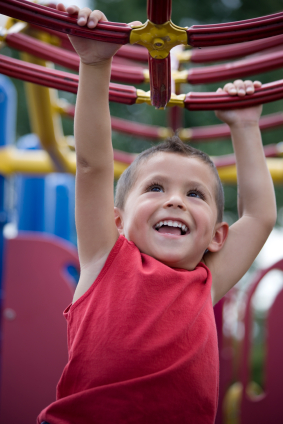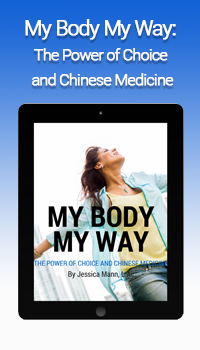Pediatric Acupuncture for Toddlers, Kids, and Teens
 After 16 years of clinical acupuncture practice, I’ve grown to love treating kids the most. While kids are more likely be nervous, I’ve never had a problem getting a child to feel comfortable enough to experience a treatment – and they always love it! My already gentle acupuncture technique is fine tuned for kids, using tinier needles, clear explanation and a partnership with kids (and parents) that put them in control of the experience. The best part is kids respond to acupuncture at lightning speed, as their nervous systems rapidly welcome the messages carefully crafted through the point selection.
After 16 years of clinical acupuncture practice, I’ve grown to love treating kids the most. While kids are more likely be nervous, I’ve never had a problem getting a child to feel comfortable enough to experience a treatment – and they always love it! My already gentle acupuncture technique is fine tuned for kids, using tinier needles, clear explanation and a partnership with kids (and parents) that put them in control of the experience. The best part is kids respond to acupuncture at lightning speed, as their nervous systems rapidly welcome the messages carefully crafted through the point selection.
Here’s what some of my littler patients’ families have to say…
![]() “We truly appreciate everything you’re doing to help our son recover from his injury. You are professional and friendly, your office environment is welcoming, relaxing and very clean & organized. You know exactly how you’re going to treat him when we walk in the door, and you use a variety of methods/modalities in conjunction with acupuncture to treat not just his elbow, but really his whole body. Our son feels very comfortable with you and we feel very fortunate to have found you.”
“We truly appreciate everything you’re doing to help our son recover from his injury. You are professional and friendly, your office environment is welcoming, relaxing and very clean & organized. You know exactly how you’re going to treat him when we walk in the door, and you use a variety of methods/modalities in conjunction with acupuncture to treat not just his elbow, but really his whole body. Our son feels very comfortable with you and we feel very fortunate to have found you.”
Lisa R., Mother of 17-year-old with baseball injury (who successfully avoided recommended rotator cuff surgery)
![]() “When Lily’s neck started bothering her and making a grinding sound, I took her straight to her pediatrician. They referred me to many specialists and we were told by all of them that what was wrong with Lily’s neck was ‘normal’. After a year of pain, I could no longer accept that this was normal. Lily was desperate to have some relief and was willing to try acupuncture. Despite being nervous about having a stranger doing acupuncture on my little girl, I searched online and was put at ease after reading about Jessica’s education and experience. When I brought Lily for her first appointment, Lily was anxious and so was I. Jessica was very kind and talked to Lily about what was going to happen. I noticed it was a peaceful, clean environment and that Lily was starting to relax. About 30 minutes later Lily came out and told me that her neck pain had gone from an 8 to a 2!!! It’s been a few months and Lily’s neck is much better and I am now a BIG believer in acupuncture. I really like that Jessica also specializes in Chinese medicine as she was able to give us some herbs when Lily was having sinus problems. We see Jessica every 2 weeks now, and Lily falls asleep during every treatment — that’s how relaxed she is. We are so grateful for Jessica’s kindness and true gift of healing through acupuncture. Thank you, Jessica!”
“When Lily’s neck started bothering her and making a grinding sound, I took her straight to her pediatrician. They referred me to many specialists and we were told by all of them that what was wrong with Lily’s neck was ‘normal’. After a year of pain, I could no longer accept that this was normal. Lily was desperate to have some relief and was willing to try acupuncture. Despite being nervous about having a stranger doing acupuncture on my little girl, I searched online and was put at ease after reading about Jessica’s education and experience. When I brought Lily for her first appointment, Lily was anxious and so was I. Jessica was very kind and talked to Lily about what was going to happen. I noticed it was a peaceful, clean environment and that Lily was starting to relax. About 30 minutes later Lily came out and told me that her neck pain had gone from an 8 to a 2!!! It’s been a few months and Lily’s neck is much better and I am now a BIG believer in acupuncture. I really like that Jessica also specializes in Chinese medicine as she was able to give us some herbs when Lily was having sinus problems. We see Jessica every 2 weeks now, and Lily falls asleep during every treatment — that’s how relaxed she is. We are so grateful for Jessica’s kindness and true gift of healing through acupuncture. Thank you, Jessica!”
Suzanne F., Mother of 9-year-old
A. Russell, Mother of 4-year-old
Conditions I commonly treat in children with acupuncture:
- Pain: Sports injuries, growing pains, arthritis, neurological disorders, etc.
- Digestive complaints: Constipation, abdominal pain, lack of appetite, digestive discomfort;
- Sleep issues: Difficulty falling or staying asleep, nightmares;
- Allergies: Congestion, sinus pressure, headaches, seasonal/environmental allergies;
- Weight management;
- Stress and anxiety, ADD/ADHD, Autism Spectrum;
- Headaches: neck pain, sinus headaches, stress headaches and others.
Pediatric Acupuncture research documents the effectiveness of acupuncture for many  conditions, including…
conditions, including…
- Chronic Pain: A Kemper and Colleagues study¹, published in the 2000 Pediatrics journal reported “ a high degree of acceptability among patients and parents, as well as pain-reducing benefits associated with acupuncture,” in a study of 47 children aged 5-20;
- Pain and Functioning: A 2002 study by Zeltzer and Colleagues² studied the effects of acupuncture and hypnotherapy on children aged 6-18 years, finding in just six weekly treatments “both parent and child reported current pain ratings decreased from baseline to post-treatment on the Varni-Thompson Pediatric Pain Questionnaire. Almost half the participants experienced a 50% reduction in current pain ratings after the intervention. There was also a significant increase in functioning according to both child and parents reports, such that there was less pain-related interference in various arenas, including physical activity and activities with friends.”
- Pain and Chronic Fatigue: A 2003 study by Lin and colleagues³ reported significant reductions in VAS (visual analog scale) ratings of pain between pre and post acupuncture measurements…”Eight adolescents, aged 11–18 years, with chronic fatigue syndrome reported similar reductions in average pain ratings, as well as temporary reductions in fatigue and an increase in energy after each treatment”
- Various Pediatric Conditions: A 1999 study by Jodorkovsky4 reported “based on child- and parent-reports and clinical observations, 96% of participants experienced improvement in their symptoms, defined as complete resolution of pain or a ≥50% reduction in pain magnitude. Approximately 70% of children noted improvements in <3 days, however most chronic symptoms improved within 1–2 weeks.”
- Constipation: In a 2001 Broide and colleagues study 5, “males and females showed a similar significant increase in number of bowel movements per week after 10 weeks of acupuncture, however, females tended to improve more quickly. In fact, female participants began to display improvements after the initial 5-week placebo acupuncture trial.”
- Allergies: In a study by Ng and colleagues in 20046 “Seventy-two children, aged 6–20 years, were assigned to receive acupuncture or sham acupuncture… biweekly for 8 weeks. During the 12 weeks following treatment, a significant reduction in daily rhinitis scores was reported among the acupuncture group. Similarly, the acupuncture group had significantly more symptom free days during the treatment and follow-up periods. Visual analog scores also revealed greater immediate improvement among those in the acupuncture group. Laboratory findings revealed that post-treatment IgE levels, which indicate the presence of an allergic antibody, were significantly elevated in the sham group, but not the acupuncture group, as compared with baseline data.”
- Neurologic Disorders: A 2004 study by Duncan and colleagues 7 focused on treatment of spastic cerebral palsy: “investigating osteopathic manipulations and acupuncture among children, aged 11 months–12 years, with spastic cerebral palsy… Based on clinical interviews, 91.3% of parents in the osteopathic group and 100% of the parents in the acupuncture group reported improvements in their children, while only 12% of control group parents reported improvements. Improved functioning was frequently described as increased use of legs or hands, more restful sleep, improved mood, more regular bowel movements and decreased muscle stiffness.”
Resources:
- Kemper KJ, Sarah R, Silver-Highfield E, Xiarhos E, Barnes L, Berde C. On pins and needles? Pediatric pain patients’ experience with acupuncture. Pediatrics. 2000;105:941–7.
- Zeltzer LK, Tsao JC, Stelling C, Powers M, Levy S, Waterhouse M. A phase I study on the feasibility and acceptability of an acupuncture/hypnosis intervention for chronic pediatric pain. J Pain Symptom Manage. 2002;24:437–46.
- Lin Y, Bioteau AB, Lee AC. Acupuncture for the management of pediatric pain: a pilot study. Acupunct Med. 2003;14:45–6 and Lin Y, Ly H, Bioteau AB. Acupuncture in the management of chronic fatigue syndrome in adolescents: a pilot study. Acupunct Med.2004;16:21–3.
- Jodorkovsky R. Hand acupuncture experience in pediatric patients. Acupunct Med. 1999;11:25–8.
- Broide E, Pintov S, Portnoy S, Barg J, Klinowski E, Scapa E. Effectiveness of acupuncture for treatment of childhood constipation. Dig Dis Sci. 2001;46:1270–5.
- Ng DK, Chow PY, Ming SP, Hong SH, Lau S, Tse D, et al. A double-blind, randomized, placebo-controlled trial of acupuncture for the treatment of childhood persistent allergic rhinitis. Pediatrics. 2004;114:1242–7.
- Duncan B, Barton L, Edmonds D, Blashill BM. Parental perceptions of the therapeutic effect from osteopathic manipulation or acupuncture in children with spastic cerebral palsy. Clin.Pediatr (Phila) 2004;43:349–53.




